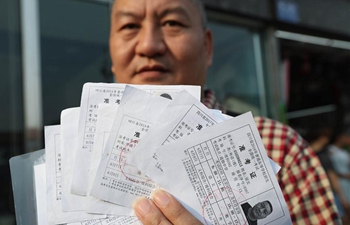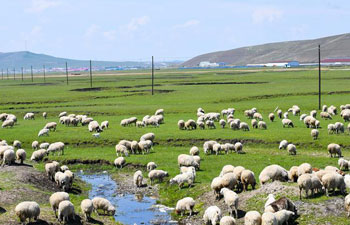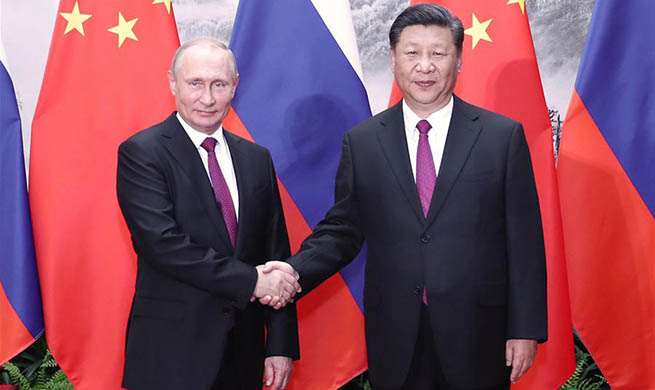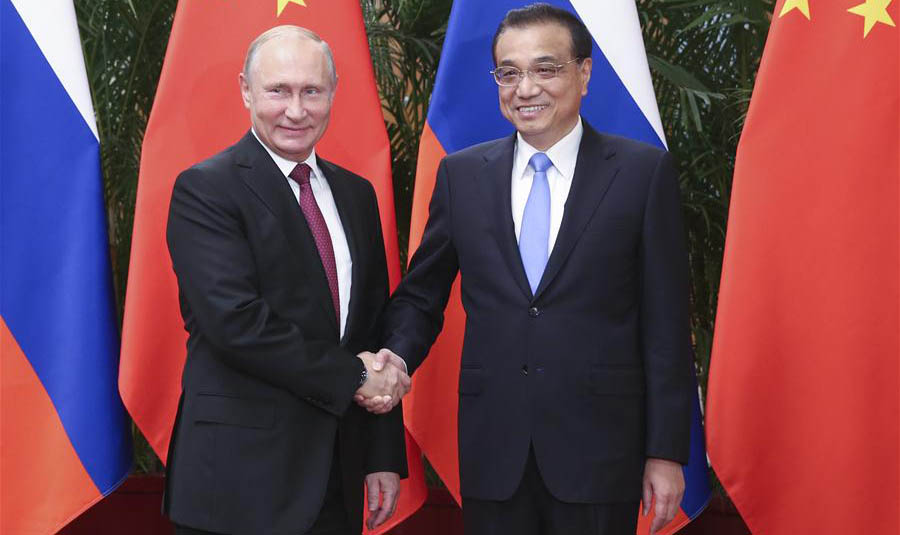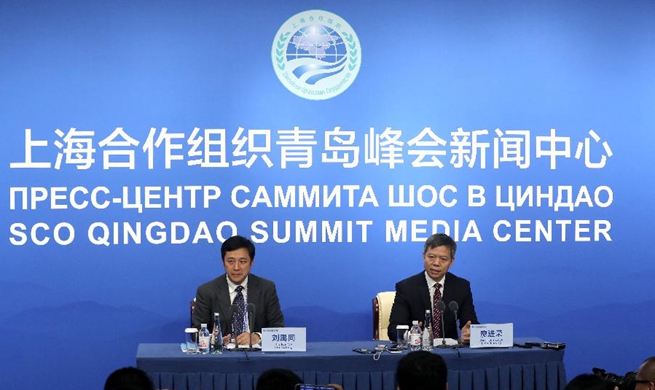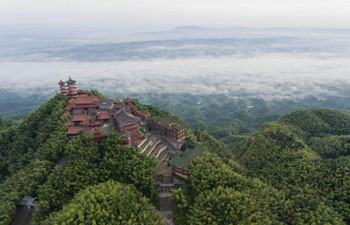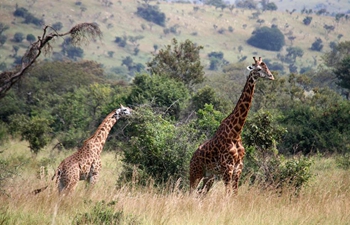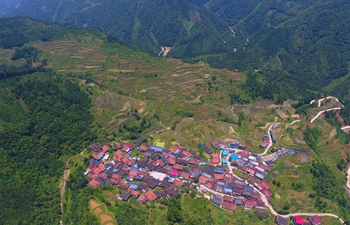ISTANBUL, June 8 (Xinhua) -- The Turkish military operation against the outlawed Kurdistan Workers' Party (PKK) in northern Iraq is partly aimed at winning support for the government ahead of key elections, analysts said.
The Turkish government is seeking to capture part of the PKK stronghold in the Qandil Mountains so as to reap benefits at the ballot box, Haldun Solmazturk, a former general with the Turkish military, told Xinhua.
Turkey will hold presidential and parliamentary elections on June 24, ahead of the original schedule in November 2019.
Turkey will hit PKK camps in Qandil, Sinjar and Makhmur in northern Iraq if the Iraqi government would not move to eliminate the PKK presence there, Turkish President Recep Tayyip Erdogan said on Thursday.
The PKK has been using the Qandil mountainous area, about 100 km from the Turkish border, as its main military base for decades. The Sinjar area has emerged as a second major PKK stronghold in northern Iraq in recent years.
Given its impressive operational capabilities, the Turkish military could easily hold some territories in Qandil to create the impression that the PKK headquarters is totally conquered, said Solmazturk.
The PKK, designated by Turkey, European Union and the U.S. as a terrorist organization, has been fighting against the Turkish government since 1984 to seek autonomy in Turkey's predominantly Kurdish southeast.
But Solmazturk, director of the Ankara-based 21st Century Turkey Institute, does not think the Turkish military would launch a full-scale operation to capture the PKK headquarters.
"Neither political nor military circumstances are appropriate for such a long operation," he said, noting that the Turkish army is now engaged in northern Iraq as well as the war-torn Syria.
The ongoing operation against the PKK was launched in late March, and the army has reportedly advanced up to around 25 km inside Iraq, clearing the area of the group.
Yet another aim of the operation is to stop PKK members from infiltrating into Turkey to stage attacks.
Turkey has set up 11 military bases in northern Iraq and doubled the number of its troops there since the operation began, said Prime Minister Binali Yildirim.
Recent polls indicated a neck-and-neck race between Erdogan, leader of the ruling Justice and Development Party, and an opposition candidate.
The opposition parties maintain that the government's motive in ordering the operation may well have to do with the elections.
Turkey's Interior Minister Suleyman Soylu dismissed such claims as manipulation.
It is a question of timing for Turkey to target the PKK headquarters, he said, underlining Ankara's determination to eliminate the PKK threat in the Qandil Mountains.
Solmazturk believes that the U.S. would not block a small-size operation in Qandil, but would oppose a large-scale operation to root out the PKK presence there.
The PKK is known to have heavily fortified camps, munition depots and shelters in Qandil. Turkish jets have bombed the PKK bases in the area, in Ankara's first ground operation to seize the PKK stronghold.
After the PKK is kicked out of Qandil, Ankara plans to establish military bases at strategic points there to prevent the return of the group, Abdulkadir Selvi, a pro-government columnist with the Hurriyet daily, wrote on Thursday.
Nobody will be surprised if the Turkish flag is raised in Qandil before June 24, Ibrahim Karagul, editor-in-chief of the pro-government Yeni Safak daily, wrote on Tuesday.
As opposed to Solmazturk, Ilhan Uzgel, a professor of international relations, said that the U.S. would not oppose the Turkish operation in Qandil as its strategy for the region is now more focused on the areas controlled by the Kurdish militia in northern Syria.
The People's Protection Units (YPG), seen by Turkey as the PKK's Syrian offshoot, controls many areas along the Turkish border. The U.S. is estimated to have around 20 military bases in the YPG-controlled areas.
Despite Ankara's vehement opposition, Washington has provided a huge amount of weapons to the YPG in the fight against the Islamic State militants in Syria.
Noting the PKK has shifted some of its forces into Syria and Sinjar in recent years, Uzgel said that "Qandil is no longer as important for the PKK as it used to be." The Sinjar region, which borders the territory under YPG control in northeastern Syria, offers the PKK access to Syria.
The Turkish army will have enough time to score a victory against the PKK before June 24, boosting the ruling party's chances in the elections, Uzgel said.







